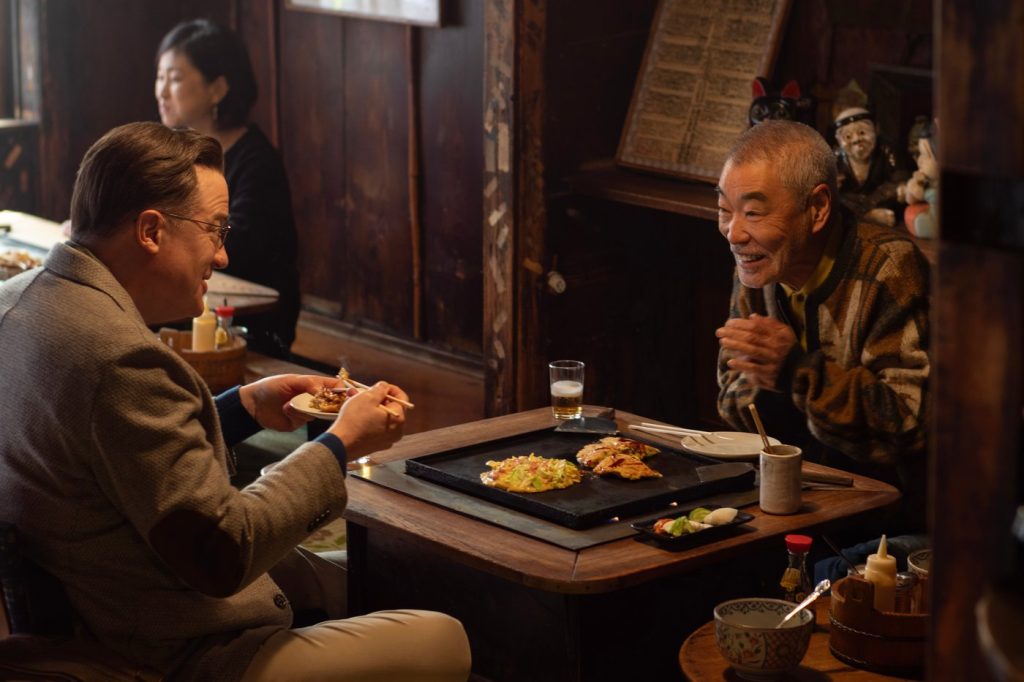TOKYO (AP) — Ryuichi Ichinokawa, the founder of the Heart Project in Japan, has been providing a unique service for nearly two decades by offering a "surrogate attendance" service that supplies actors to fill roles as family members or friends for various events. His business model echoes the premise of the upcoming film “Rental Family,” which features a storyline about such services in Tokyo, showcasing the complexity and emotional investment involved in these interactions.
Ichinokawa has hired numerous individuals to impersonate journalists, attend events, and even play the role of a boyfriend for women needing assistance with legal matters. In another instance, he acted as a stand-in husband for a woman undergoing fertility treatments. "I am being of service to people. I hope they will be happy," remarked Ichinokawa, an elderly man who requested to remain anonymous to protect his identity.
The film “Rental Family,” starring Brendan Fraser, is set to attract attention toward Japan’s burgeoning industry of rental family services. The narrative revolves around an American actor hired to be a “token white guy” for a rental family agency, engaging in activities ranging from video games with a recluse to portraying a long-absent father. As the character develops emotional ties with those he interacts with, the film explores the depths of human connection through the lens of artificial relationships.
In Japan, these businesses cater to a significant cultural phenomenon where many individuals grapple with loneliness and the pressure of maintaining social appearances. While outsiders may find the notion of hiring actors for familial roles peculiar, the clients often express that such services provide comfort and solace during difficult times.
The film's director, Mitsuyo Miyazaki, known professionally as Hikari, discovered this unique industry and was inspired to tell its story. Upon researching, she found hundreds of companies in Japan offering similar services and conducted interviews to grasp the players and necessities behind this business model. Hikari believes that even as digital companionship grows more prevalent, the demand for human connection through these role-playing services will likely continue to expand.
Ichinokawa revealed that many clients seek these services to protect their social standing, as evidenced by organizing gatherings for a hostess wishing to impress her employers. He often accompanies clients to communal events while effectively portraying a familial role, such as acting as an uncle for a single mother and her child. Ichinokawa meticulously prepares for each role, adopting aliases and learning intricate details about his character to maintain authenticity, going as far as taking notes to remember names and background stories.
Compensation for these roles varies; casual roles can fetch around 9,800 yen ($63) for a few hours, while more involved characters may command fees ranging from 20,000 yen ($130) to 30,000 yen ($190). Ichinokawa adheres to a strict policy of playing each role only once to avoid any complications in the narrative he constructs for his clients.
Japan has been facing a loneliness epidemic, often manifesting in social withdrawal and higher suicide rates. Mental health awareness has grown since the devastating 2011 earthquake and tsunami, prompting initiatives to address issues like depression and suicide, especially among youth. Experts indicate that Japanese societal norms tend to obscure mental health struggles, often leading to a loss of face and increasing social isolation.
Research by scholars, including Miwa Yasui from the University of Chicago and Chikako Ozawa-de Silva from Emory University, highlights how cultural expectations of harmony and societal acceptance further exacerbate feelings of loneliness. They suggest that while hiring actors may provide temporary relief, it ultimately serves as a “Band-Aid” for deeper emotional issues that require time and connection to resolve.
Interestingly, while individuals from Western backgrounds may consider the renting of actors as peculiar, many Japanese find reassurances from such services. Feedback from clients often expresses gratitude for the emotional support provided during their interactions, reinforcing the idea that familial connections can transcend blood relations.
The film “Rental Family,” set for release in Japan in February, underscores the primal human need for connection, illustrating that the essence of family and support does not always necessitate biological ties. Hikari summarizes the emotional core of such interactions, stating, “When you help somebody and if they feel like you’re being supportive, that makes you feel good, and a family member doesn’t have to be always blood-related.”











